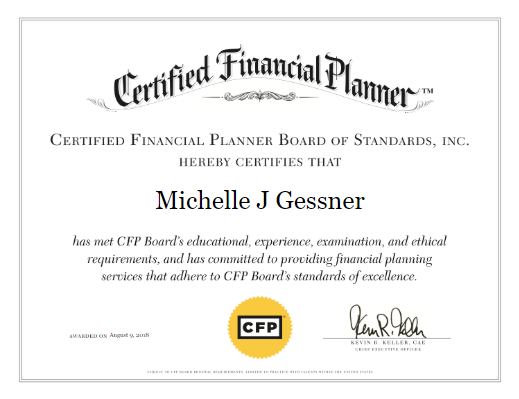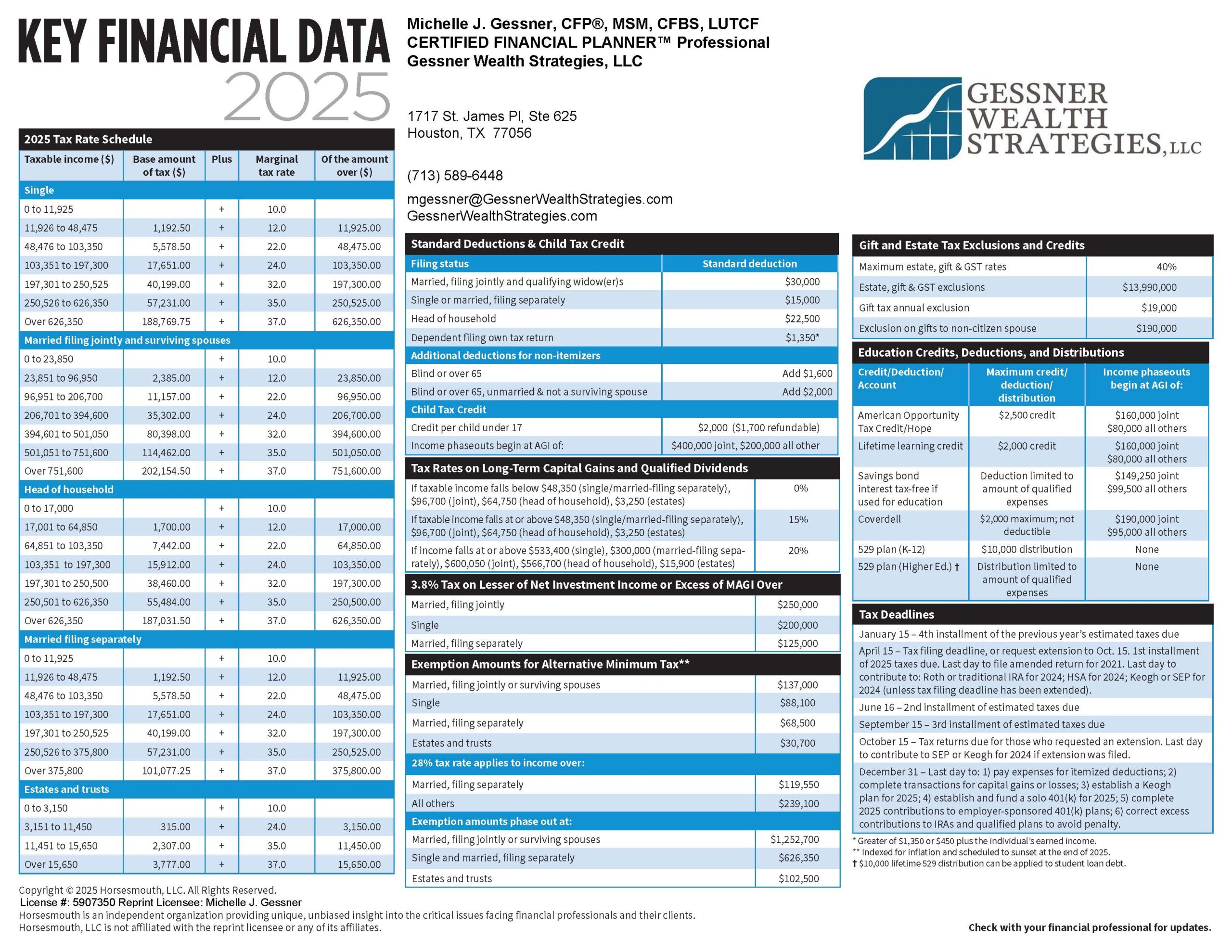Whether you’re saving, investing, spending, bequeathing or receiving wealth, there’s scarcely a move you can make without considering how taxes might influence the outcome.
No wonder people get nervous when there’s lots of talk about higher taxes, but little certainty on what may come of it, and who it might affect.
How do we plan when we cannot know?
The particulars may evolve, but it seems there are always an array of tax breaks to encourage us to save toward our major life goals – such as retirement, healthcare, education, emergency spending, charitable giving, and wealth transfer
However, it remains up to us to make the best use of these “tools of the trade”.
Today, let’s take a look at some of the most familiar tax breaks available.
In our next article, we cover how we help our clients incorporate them into and across their greater wealth goals.
Saving for Retirement
The good and bad news about saving for retirement is how many tax-favored savings accounts exist for this purpose.
There are a number of employer-sponsored plans, like the 401(k), 403(b) and SIMPLE IRA. There also are individual IRAs you establish outside of work. For both, there are traditional and Roth structures available.
In any of these types of retirement accounts, your dollars have the opportunity to grow tax-free while they remain in the account.
This helps your retirement assets accumulate more quickly than if they were subject to the ongoing taxes that taxable accounts incur annually along the way (such as realized capital gains, dividends, or interest paid).
Tax treatments for different types of retirement accounts can differ dramatically from there.
For some, you can make pre-tax contributions, but withdrawals are taxed at ordinary income rates in the year you take them. For others, you contribute after-tax dollars, but withdrawals are tax-free – again, with some caveats.
Each account type has varying rules about when, how, and how much money you can contribute and withdraw without incurring burdensome penalties or unexpected taxes owed
Saving for Healthcare Costs (HSAs)
The Healthcare Savings Account (HSA) offers a rare, triple-tax-free treatment to help families save for current or future healthcare costs.
You contribute to your HSA with pre-tax dollars; HSA investments then grow tax-free; and you can spend the money tax-free on qualified healthcare costs. That’s a good deal.
Plus, you can invest unspent HSA dollars, and still spend them tax-free years later, as long as it’s on qualified healthcare costs. But again, there are some catches.
Most notably, HSAs are only available as a complement to a high-deductible healthcare plan, to help cover higher expected out-of-pocket expenses.
Employers also can offer Flexible Spending Accounts (FSAs), into which you and they can add pre-tax dollars to spend on out-of-pocket healthcare costs. However, FSA funds must be spent relatively quickly, so investment and tax-saving opportunities are limited.
Saving for Education (529 Plans)
529 plans are among the most familiar tools for catching a tax break on educational costs.
You fund your 529 plan(s) with after-tax dollars.
Those dollars can then grow tax-free, and the beneficiary (usually, your kids or grandkids) can spend them tax-free on qualified educational expenses.
Saving for Giving (DAFs)
The Donor-Advised Fund (DAF) is among the simplest, but still relatively effective tools for pursuing tax breaks for your charitable giving. Instead of giving smaller amounts annually, you can establish a DAF, and fund it with a larger, lump-sum contribution in one year.
You then recommend DAF distributions to your charities of choice over future years.
Combined with other deductibles, you might be able to take a sizeable tax write-off the year you contribute to your DAF – beyond the currently higher standard deduction.
There also are many other resources for higher-end planned giving. For these, you’d typically collaborate with a team of tax, legal, and financial professionals to pursue your tax-efficient philanthropic interests.
Saving for Emergencies
There also are a variety of tax-friendly incentives to facilitate general “rainy day fund” saving and to offset crisis spending, like the kind many of us have been experiencing during the pandemic.
These include state, federal, and municipal savings vehicles; along with targeted tax credits and tax deductions.
Saving for Heirs
Last but not least, a bounty of trusts, insurance policies and other estate planning structures help families leverage existing tax breaks to tax-efficiently transfer their wealth to future generations.
With recent negotiations over the tax treatment on inherited assets, families may well need to revisit their estate planning in the years ahead.
In fact, whether times are turbulent or tame, there’s always an array of best practices we can aim at reducing your lifetime tax bills by leveraging available tools to maximum effect. We cover those here.



